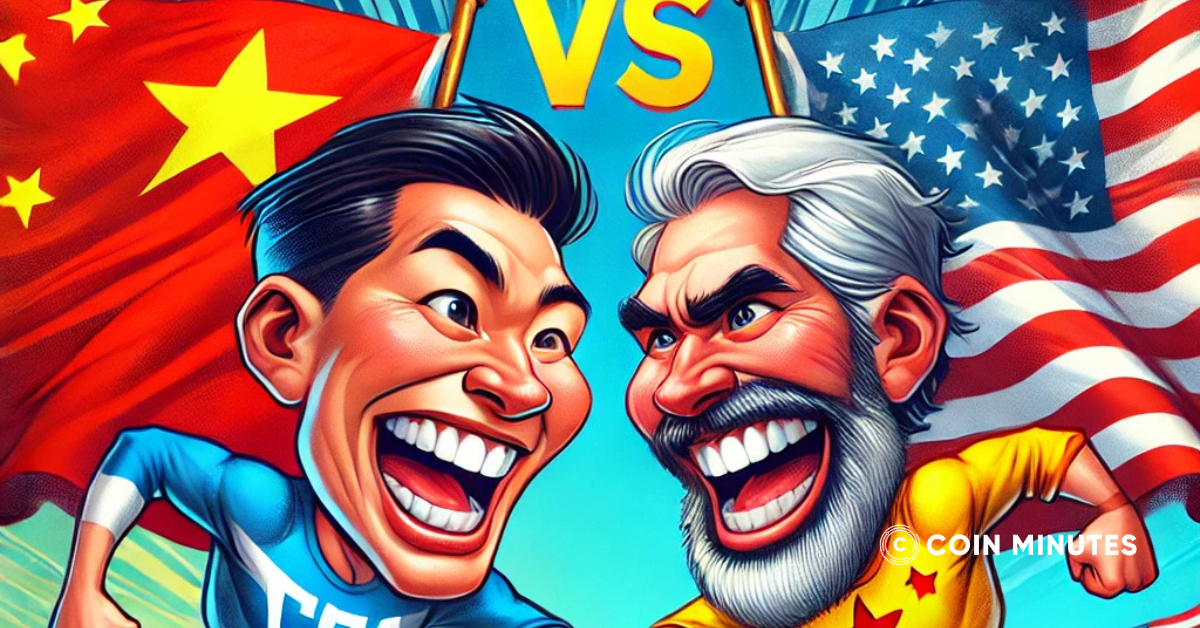As of February 5, 2025, the cryptocurrency market, particularly the AI crypto segment, is experiencing significant volatility due to escalating trade tensions between the United States and China. On February 4, China retaliated against the U.S.’s imposition of a 10% tariff on Chinese goods by implementing a 15% counter-tariff on selected U.S. products. This development has profoundly impacted the cryptocurrency sector, especially AI-related cryptocurrencies.
Impact on AI Cryptocurrency Market
In the past 24 hours, the total market capitalization of AI-related cryptocurrencies has declined by over 9%. Major tokens such as NEAR Protocol, Internet Computer, and Render have experienced significant drops, with NEAR slipping by 24.3%, Internet Computer by 19.2%, and Render by 21.5%. This downturn reflects investor apprehension regarding the potential long-term effects of the trade dispute on the AI crypto market.
The trade conflict has introduced uncertainty into the market, leading to a sell-off in AI cryptocurrencies. The U.S.’s tariff plan against China includes a 10% tariff on Chinese semiconductor components, which could increase production costs for companies like NVIDIA, a key supplier of GPUs essential for AI hardware. This scenario may slow down AI hardware production and adversely affect AI projects reliant on high-performance computing capabilities.
🚨 CHINA RETALIATION SPARKS $2.5B CRYPTO AI EXIT 🚨
Xi Jinping reignites antitrust scrutiny on U.S. tech giants like Google, NVIDIA, and Intel, causing global market concerns. 🇨🇳💥
This move is seen as a response to the Trump administration’s tariff hikes. 💣
The crypto AI… pic.twitter.com/W0C0VfPI5b
— Bitunix (@BitunixOfficial) February 5, 2025
NVIDIA’s Market Performance
NVIDIA, a leading AI hardware manufacturer, has seen its share price decline by 20.60% over the past 30 days, with a year-to-date change of -14.21%. In the last five days alone, the stock has fallen by 6.14%, reflecting investor concerns about the company’s future prospects amid the escalating trade tensions.
Experts suggest that if the U.S.-China trade crisis eases, the AI crypto sector could recover swiftly. However, if the economic conflict between the two global powers intensifies, the AI crypto segment may face further challenges. There are also rumors that China may launch investigations into U.S. tech giants like Intel and Qualcomm, which could further impact the tech industry.

Global Market Reactions
The trade dispute has not only affected the AI crypto market but also led to a broader market downturn. The cryptocurrency market experienced a flash crash, wiping out over $269 billion in a single day, with AI and meme tokens among the biggest losers. Bitcoin, for instance, fell to a multi-week low below $98,000, reflecting the market’s sensitivity to geopolitical developments.
In addition to trade tensions, China’s rapid advancements in artificial intelligence have raised concerns in the U.S. The launch of DeepSeek, a Chinese AI model, has been described as a “Sputnik moment” for American AI, highlighting the competitive pressure on U.S. tech companies. DeepSeek’s performance has been recognized as potentially challenging the global dominance of American AI models, further complicating the geopolitical landscape.
The AI cryptocurrency market is currently under significant pressure due to escalating U.S.-China trade tensions and China’s rapid advancements in artificial intelligence. While there is potential for recovery if the trade situation improves, the market remains volatile, and investors should exercise caution and stay informed about ongoing developments.
Related news: Bitcoin Struggles to Stay Above $100,000 Amid China’s Retaliatory Tariffs on US Goods








